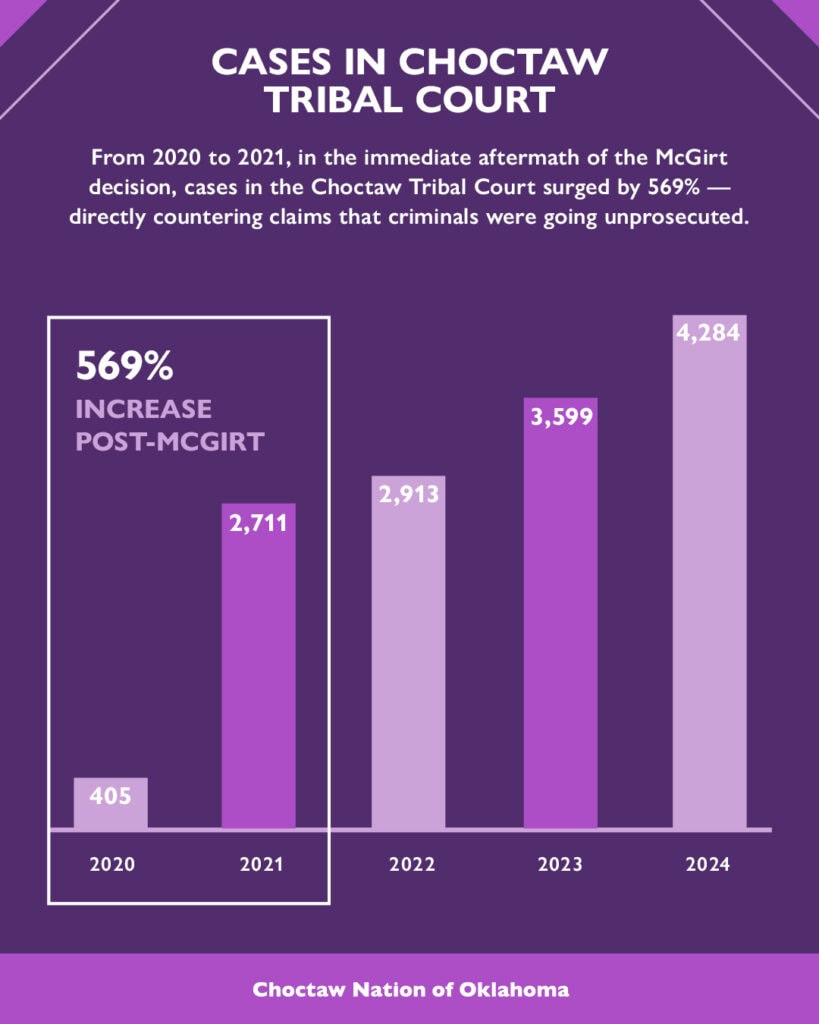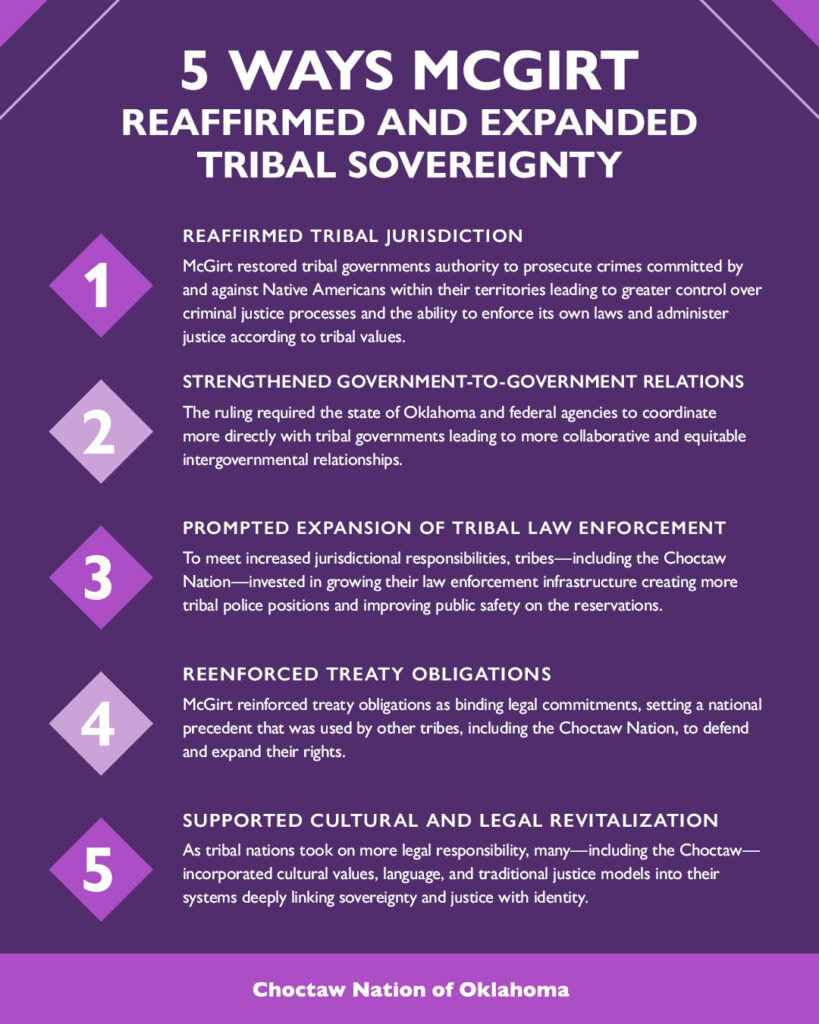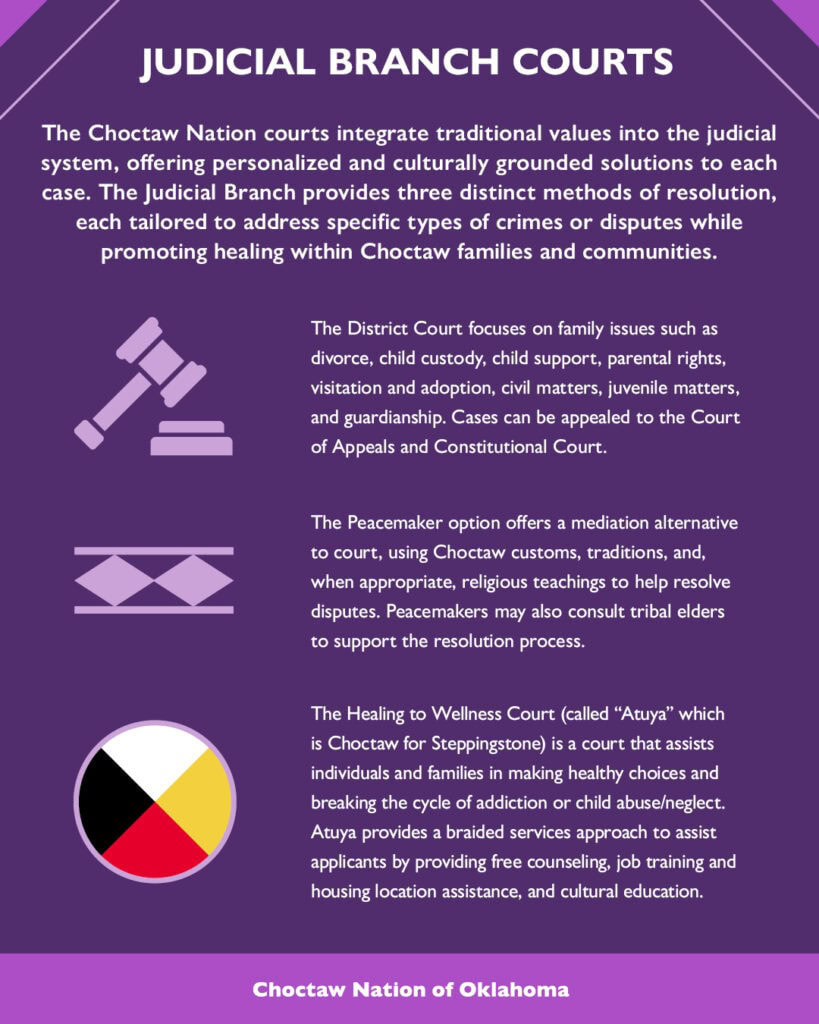It has been 5 years in a post-McGirt world.
On July 9, 2020, the U.S. Supreme Court ruled in McGirt v. Oklahoma that the Muscogee (Creek) Nation’s reservation had never been disestablished when Oklahoma became a state in 1907 and that Jimcy McGirt, a felon convicted by the state, should have been prosecuted in federal court, not state court.
This argument is based on the 1885 Major Crimes Act, a federal law dictating that major crimes involving Native Americans in Indian Country be prosecuted in federal or tribal court.
The Major Crimes Act grants tribes and the federal government exclusive jurisdiction to prosecute certain enumerated offenses committed by Indians within Indian Country.
The McGirt decision, and the Sizemore decision that followed, reaffirmed the longstanding treaty rights of the Choctaw Nation of Oklahoma (CNO).
“The McGirt ruling reaffirmed preexisting treaties between tribes and the federal government and, more importantly, left no doubt as to our continuing sovereignty over our Nation,” said CNO Chief Gary Batton.
While the Choctaw people have governed their lands and exercised sovereignty since the 1830s, this landmark ruling brought lasting, meaningful change.
More information can be found on the Choctaw Nation website.



